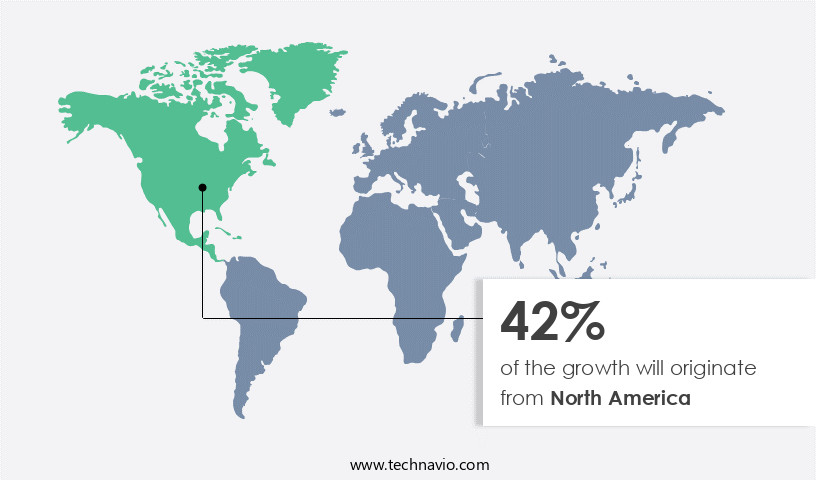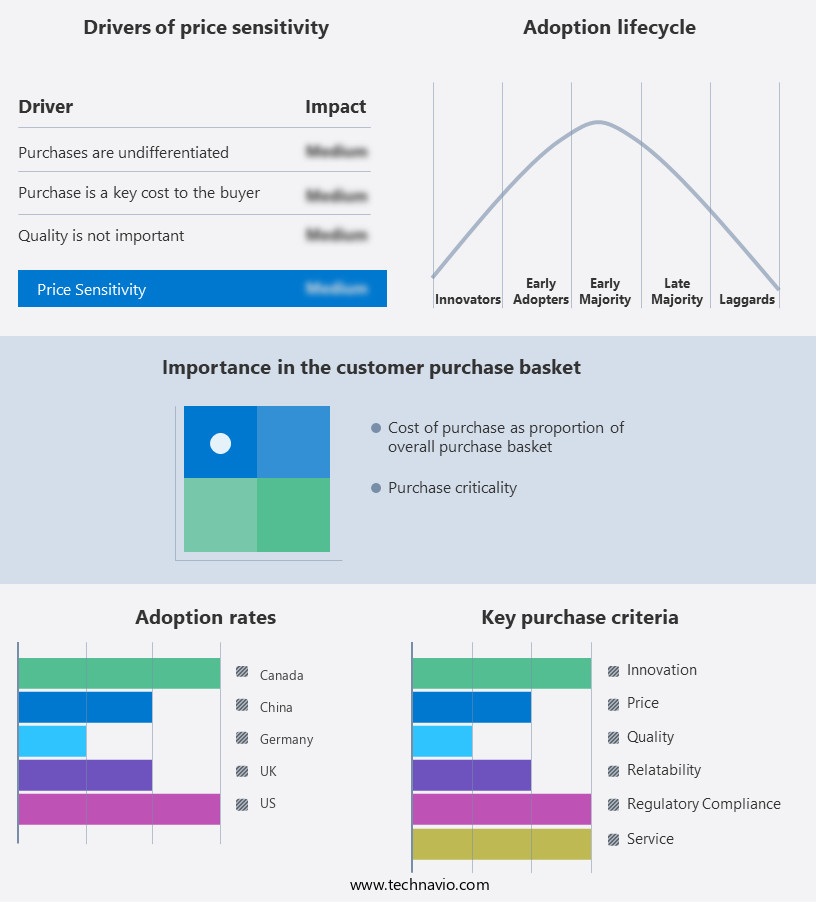Anti-Inflammatory Therapeutics Market Size 2024-2028
The anti-inflammatory therapeutics market size is forecast to increase by USD 38.7 billion at a CAGR of 6.3% between 2023 and 2028.
- The market is experiencing significant growth driven by the increasing off-label use of existing drugs and the emergence of novel anti-inflammatory agents. Off-label use, which refers to the application of a drug for indications other than those approved by regulatory authorities, is on the rise due to the unmet medical needs in various inflammatory conditions. This trend presents both opportunities and challenges for market players. On the one hand, it expands the addressable market for anti-inflammatory therapeutics. On the other hand, it increases competition and regulatory scrutiny. Another key driver is the emergence of novel anti-inflammatory drugs, including monoclonal antibodies, small molecules, and biologics.
- These new therapies offer improved efficacy, safety, and convenience compared to traditional anti-inflammatory drugs. However, the development and commercialization of these drugs come with significant risks and uncertainties. The complex regulatory landscape, high development costs, and patent expiries of blockbuster drugs are some of the challenges that market players need to navigate effectively to capitalize on the opportunities in the market. Companies seeking to succeed in this market must focus on innovation, strategic partnerships, and regulatory compliance to stay ahead of the competition.
What will be the Size of the Anti-Inflammatory Therapeutics Market during the forecast period?
- The market in the US is experiencing significant growth due to the increasing prevalence of chronic conditions, such as chronic pain, autoimmune diseases, and inflammatory diseases, including pneumonia, rheumatoid arthritis, and inflammatory bowel diseases. Factors driving market expansion include the rising incidence of infectious illnesses, such as pneumonia and acute respiratory distress, which often result in inflammation and swelling. Moreover, the increasing use of biosimilars and anti-inflammatory biologics, such as Remicade, for the treatment of autoimmune diseases and inflammatory conditions, is contributing to market growth. Prostaglandin levels, which play a role in inflammation and pain, are also a focus for new therapeutic developments.
- However, the negative effects of long-term use of conventional medications and the emergence of patent expirations for key drugs may pose challenges to market expansion. The market for anti-inflammatory therapeutics is substantial and continues to grow, driven by the rising burden of chronic illnesses and the need for effective pain relief solutions.
How is this Anti-Inflammatory Therapeutics Industry segmented?
The anti-inflammatory therapeutics industry research report provides comprehensive data (region-wise segment analysis), with forecasts and estimates in "USD billion" for the period 2024-2028, as well as historical data from 2018-2022 for the following segments.
- Application
- RA
- Psoriasis
- MS
- Drug Class
- Anti-inflammatory biologicals
- Corticosteroids
- NSAIDs
- Geography
- North America
- US
- Canada
- Europe
- Germany
- UK
- Asia
- China
- Rest of World (ROW)
- North America
By Application Insights
The ra segment is estimated to witness significant growth during the forecast period.
Anti-inflammatory therapeutics play a significant role in pain relief and managing various inflammatory disorders, including rheumatoid arthritis, inflammatory bowel diseases, and autoimmune diseases. These disorders arise when the body's immune system mistakenly attacks healthy cells, leading to inflammation and autoimmune responses. According to , the global population affected by autoimmune diseases is increasing, with an estimated 54.4 million adults in the US alone. These conditions can lead to chronic pain, disability, and increased healthcare spending on conventional medications and anti-inflammatory pharmaceuticals. Inflammatory disorders also affect other systems in the body, such as the respiratory system.
For instance, acute lung injury and acute respiratory distress syndrome (ARDS) can result from a cytokine storm, which is an excessive release of cytokines, inflammatory markers, and prostaglandin levels. Respiratory diseases, including asthma, COPD, and pneumonia, can also be characterized by inflammation. Anti-inflammatory therapeutics, such as corticosteroids, Janus kinase inhibitors, monoclonal antibodies, and biosimilars, can help manage these conditions. However, these treatments may have negative effects, such as increased risk of infections and potential side effects. Therefore, new medications and treatments, such as NLRP3 inflammasome inhibitors, are being researched to mitigate these side effects while maintaining their therapeutic benefits.
Moreover, the increasing incidence of inflammatory disorders, chronic illnesses, and infectious illnesses has led to a growing demand for anti-inflammatory therapeutics. This trend is expected to continue, making it crucial for pharmaceutical companies to invest in research and development of new treatments and medications. Retail pharmacies, hospital pharmacies, and internet pharmacies are also playing a vital role in making these treatments accessible to patients. However, patent expiration and the emergence of biosimilars may impact the market dynamics of anti-inflammatory therapeutics.
Get a glance at the market report of share of various segments Request Free Sample
The RA segment was valued at USD 47.00 billion in 2018 and showed a gradual increase during the forecast period.
Regional Analysis
North America is estimated to contribute 42% to the growth of the global market during the forecast period.Technavio’s analysts have elaborately explained the regional trends and drivers that shape the market during the forecast period.
For more insights on the market size of various regions, Request Free Sample
The market in North America experienced significant growth in 2022, driven by the high prevalence of inflammatory disorders such as arthritis and autoimmune diseases. According to the Centers for Disease Control and Prevention (CDC), approximately 58.5 million adults in the US had arthritis in November 2021, representing around 24% of the population. Common types of arthritis include rheumatoid arthritis, osteoarthritis, lupus, and fibromyalgia. The increasing incidence of these conditions fuels the demand for anti-inflammatory therapeutics, which include IMID drugs, corticosteroids, monoclonal antibodies, and biosimilars. Beyond arthritis, anti-inflammatory therapeutics are also used to treat various other inflammatory conditions, such as menstrual pain, multiple organ dysfunction, and respiratory diseases, including acute respiratory distress syndrome (ARDS), acute lung injury, pneumonia, and chronic obstructive pulmonary disease (COPD).
These conditions can result from a cytokine storm, an excessive immune response that leads to inflammation. Moreover, the market is expanding due to the increasing prevalence of inflammatory disorders, such as inflammatory bowel diseases, atopic dermatitis, and autoimmune inflammatory disorders. The negative effects of these conditions can lead to chronic ailments, resulting in increased healthcare spending and the need for effective treatments. New medications, such as Janus kinase inhibitors and NLRP3 inflammasome inhibitors, are also entering the market, offering potential solutions for various inflammatory conditions. These new treatments, along with conventional medications and anti-inflammatory biologics, are available at retail pharmacies, hospital pharmacies, and even online through internet pharmacies, making them accessible to a broader population.
The global health crisis has highlighted the importance of addressing inflammatory disorders, which can contribute to various chronic illnesses and infectious diseases. As research continues to uncover new insights into the role of inflammation in various conditions, the demand for effective anti-inflammatory therapeutics is expected to grow.
Market Dynamics
Our researchers analyzed the data with 2023 as the base year, along with the key drivers, trends, and challenges. A holistic analysis of drivers will help companies refine their marketing strategies to gain a competitive advantage.
What are the key market drivers leading to the rise in the adoption of Anti-Inflammatory Therapeutics Industry?
- Increase in off-label use is the key driver of the market.
- The complex etiology of inflammatory and immune-mediated diseases (IMIDs) and autoimmune conditions necessitates the exploration of various therapeutic options. Anti-inflammatory drugs, including corticosteroids and non-steroidal anti-inflammatory drugs (NSAIDs), have gained significant attention due to their wide availability and versatile applications. Some of these drugs, such as Ibuprofen and naproxen, are available over the counter and are used to treat various indications. Dexamethasone and its derivatives, like prednisolone, are corticosteroids available over the counter to manage inflammatory and allergic reactions.
- The extensive use of these drugs, particularly in the absence of disease-modifying treatments for IMIDs and autoimmune diseases, is expected to fuel market expansion during the forecast period.
What are the market trends shaping the Anti-Inflammatory Therapeutics Industry?
- Emergence of novel anti-inflammatory drugs is the upcoming market trend.
- Cytokines are essential proteins produced by immune cells that facilitate communication between cells and play a crucial role in cell development and differentiation. These protein molecules activate the JAK/signal transducers and activators of transcription (STAT) pathway upon binding to their specific receptors on the cell surface. This signaling pathway transmits information from extracellular chemical signals to the nucleus, leading to DNA transcription and the expression of genes involved in various cellular processes, including cell growth, survival, differentiation, proliferation, apoptosis, and inflammation.
- The JAK/STAT signaling pathway consists of a cell receptor, a JAK enzyme, two signaling transducers, and an activator of transducer protein. The activation of this pathway is a fundamental mechanism for the regulation of immune response and inflammation. the intricacies of this pathway can lead to the development of novel therapeutic interventions for various inflammatory conditions.
What challenges does the Anti-Inflammatory Therapeutics Industry face during its growth?
- Risks and uncertainties associated with anti-inflammatory biologics is a key challenge affecting the industry growth.
- Anti-inflammatory therapeutics represent a complex and intricate market due to the lengthy, costly, and uncertain processes involved in their discovery, development, manufacturing, and sales. Biologics, a significant segment of anti-inflammatory therapeutics, come with unique challenges. Government regulations pose a major hurdle in the transportation and use of essential raw materials, such as cell lines, for the development of these products. Moreover, the manufacturing and sale of biologics are subjected to stringent regulations that are typically more complex and extensive than those for other pharmaceutical products.
- According to Form 10-K 15 13NOV201221352027, the production of large quantities of biologics necessitates the use of advanced technologies, a specially designed manufacturing facility validated for this purpose, and adherence to validated manufacturing procedures that comply with standard norms to ensure product quality.
Exclusive Customer Landscape
The anti-inflammatory therapeutics market forecasting report includes the adoption lifecycle of the market, covering from the innovator’s stage to the laggard’s stage. It focuses on adoption rates in different regions based on penetration. Furthermore, the anti-inflammatory therapeutics market report also includes key purchase criteria and drivers of price sensitivity to help companies evaluate and develop their market growth analysis strategies.
Customer Landscape
Key Companies & Market Insights
Companies are implementing various strategies, such as strategic alliances, anti-inflammatory therapeutics market forecast, partnerships, mergers and acquisitions, geographical expansion, and product/service launches, to enhance their presence in the industry.
AbbVie Inc. - The company specializes in innovative sports products, delivering high-quality solutions to enhance athletic performance and promote an active lifestyle. Our offerings cater to various sports and fitness activities, incorporating advanced technologies and materials for optimal results. By focusing on consumer needs and market trends, we continuously strive to push the boundaries of sports product design and development.
The industry research and growth report includes detailed analyses of the competitive landscape of the market and information about key companies, including:
- AbbVie Inc.
- Alvogen Iceland ehf
- Amgen Inc.
- Amneal Pharmaceuticals Inc.
- Bayer AG
- Boehringer Ingelheim International GmbH
- Bristol Myers Squibb Co.
- Cadila Pharmaceuticals Ltd.
- Cipla Inc.
- Eli Lilly and Co.
- F. Hoffmann-La Roche Ltd.
- Ferring BV
- GlaxoSmithKline Plc
- Johnson and Johnson Services Inc.
- Lupin Ltd.
- Viatris Inc.
- Pfizer Inc.
- Sanofi SA
- Teva Pharmaceutical Industries Ltd.
- Novartis AG
Qualitative and quantitative analysis of companies has been conducted to help clients understand the wider business environment as well as the strengths and weaknesses of key industry players. Data is qualitatively analyzed to categorize companies as pure play, category-focused, industry-focused, and diversified; it is quantitatively analyzed to categorize companies as dominant, leading, strong, tentative, and weak.
Research Analyst Overview
Anti-inflammatory therapeutics have gained significant attention in the healthcare industry due to their potential to alleviate various inflammatory disorders and chronic ailments. These conditions, which include but are not limited to menstrual pain, multiple organ dysfunction, and respiratory diseases, can cause significant discomfort and negatively impact the quality of life for individuals. The market for anti-inflammatory therapeutics is driven by the increasing prevalence of inflammatory disorders and chronic illnesses. These conditions are often characterized by the release of cytokines, which are signaling proteins that play a crucial role in inflammation. Prostaglandin levels, another marker of inflammation, are also elevated in many of these conditions.
Anti-inflammatory therapeutics work by inhibiting the production of cytokines and prostaglandins or by modulating the activity of immune cells. These therapeutics can be administered through various channels, including retail pharmacies, hospital pharmacies, and e-commerce platforms. Corticosteroids and non-steroidal anti-inflammatory drugs (NSAIDs) have long been the conventional medications used to treat inflammatory disorders. However, the emergence of biologic therapies, such as monoclonal antibodies and Janus kinase inhibitors, has expanded the therapeutic options available to healthcare providers. One class of biologics that has gained significant attention is anti-inflammatory biologics, which target specific inflammatory pathways. For instance, some biologics target the NLRP3 inflammasome, a protein complex that plays a crucial role in the inflammatory response.
These biologics have shown promise in the treatment of various inflammatory disorders, including autoimmune diseases and respiratory diseases. The market for anti-inflammatory therapeutics is also being influenced by patent expirations, which has led to the introduction of biosimilars. These are biologically similar versions of original biologic drugs, which can offer cost savings to healthcare systems and patients. Despite the benefits of anti-inflammatory therapeutics, their use is not without risks. For instance, long-term use of corticosteroids can lead to various side effects, including weight gain, mood swings, and increased risk of infections. Similarly, the use of NSAIDs can increase the risk of gastrointestinal bleeding and cardiovascular events.
The global health crisis, including the COVID-19 pandemic, has highlighted the importance of effective anti-inflammatory therapeutics. For instance, some of these therapeutics have been used to treat acute respiratory distress, acute lung injury, and cytokine storm, which are complications associated with COVID-19. In , the market for anti-inflammatory therapeutics is driven by the increasing prevalence of inflammatory disorders and chronic illnesses. The emergence of biologic therapies and biosimilars has expanded the therapeutic options available to healthcare providers. However, the use of these therapeutics is not without risks, and healthcare providers must carefully consider the benefits and risks when prescribing them to patients.
The global health crisis has further d the importance of effective anti-inflammatory therapeutics in managing various inflammatory conditions.
|
Market Scope |
|
|
Report Coverage |
Details |
|
Page number |
174 |
|
Base year |
2023 |
|
Historic period |
2018-2022 |
|
Forecast period |
2024-2028 |
|
Growth momentum & CAGR |
Accelerate at a CAGR of 6.3% |
|
Market growth 2024-2028 |
USD 38.7 billion |
|
Market structure |
Fragmented |
|
YoY growth 2023-2024(%) |
5.81 |
|
Key countries |
US, Germany, UK, Canada, and China |
|
Competitive landscape |
Leading Companies, Market Positioning of Companies, Competitive Strategies, and Industry Risks |
What are the Key Data Covered in this Anti-Inflammatory Therapeutics Market Research and Growth Report?
- CAGR of the Anti-Inflammatory Therapeutics industry during the forecast period
- Detailed information on factors that will drive the growth and forecasting between 2024 and 2028
- Precise estimation of the size of the market and its contribution of the industry in focus to the parent market
- Accurate predictions about upcoming growth and trends and changes in consumer behaviour
- Growth of the market across North America, Europe, Asia, and Rest of World (ROW)
- Thorough analysis of the market’s competitive landscape and detailed information about companies
- Comprehensive analysis of factors that will challenge the anti-inflammatory therapeutics market growth of industry companies
We can help! Our analysts can customize this anti-inflammatory therapeutics market research report to meet your requirements.




